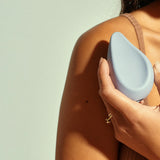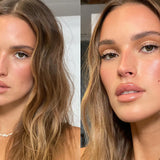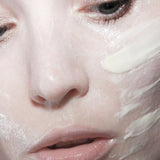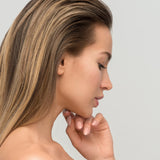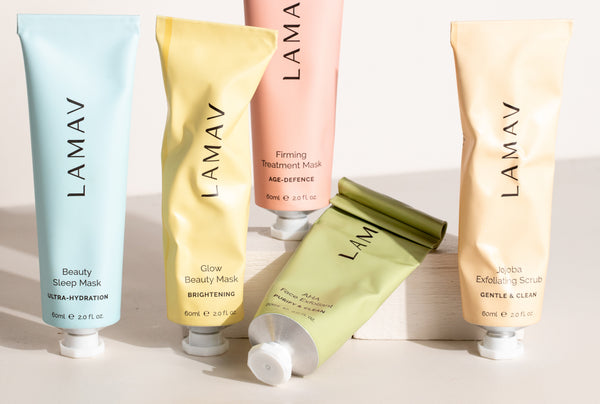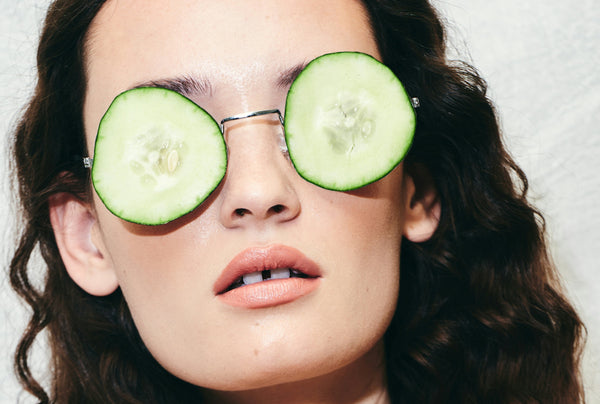It's the season for social gatherings, late nights and over-indulging. After the year we’ve all had, we’ve earned it. But that’s not to say we shouldn’t still take it easy. Especially when it comes to our alcohol intake. Hangovers aren’t the only side effect we’ll have to contend with. Alcohol can do a real number on our skin.
To make sure bad skin doesn’t get in the way of your busy social season, we asked two Australian skin experts for their advice on how to enjoy a cocktail or two without compromising your complexion.
How does alcohol affect skin?
For some people, the effects of alcohol on their skin are pretty obvious - after a few drinks their faces look flush and blotchy. But for others, the way alcohol impacts your skin may be more subtle or gradual.
“We all hear of the effects that alcohol can have on our liver, kidneys, and brain, but we don’t hear much about what alcohol can do to our body’s largest organ - the skin,” says registered nurse, nutritionist and naturopath Madeline Calfas of The Wellness Group. “Think puffiness and bloating, dark circles under the eyes, rosacea flare-ups, rosy red cheeks, cellulitis, hives, psoriasis flare-ups, increased sensitivity to the sun, dandruff, runny, red nose, red palms and increased likelihood of skin cancers.”
The two most common skin concerns caused by alcohol are inflammation and skin ageing:
Inflammation
“The link between alcohol and skin inflammation is complex,” explains Australian dermatologist Dr Katherine Armour. “Some studies suggest that light alcohol consumption (especially red wine) may reduce inflammation due to the consumption of antioxidants within wine. However, these studies suggest that drinking more than one or two standard units of alcohol ‘regularly’ may actually increase inflammation throughout the body, including our skin,” she adds.
“From a biochemical perspective, alcohol is processed through our liver, which is the key filtration system of the body,” elaborates Calfas. “Acetaldehyde is the byproduct of a liver enzyme that is part of the alcohol metabolism pathway in the body, and it is toxic to the tissues of the body. This toxic exposure creates inflammation within the body, and as a result it stimulates a release of histamine, which dilates (opens) the body’s blood vessels, which increases the blood flow to the skin, and subsequently increases the amount of redness in the tissue as well.”
Inflammation can also lead to general puffiness. “I think that we’ve all experienced that bloated, puffy feeling the day after one or two too many – that’s inflammation!” says Dr Armour.
Breakouts are another common side effect of alcohol-induced inflammation. “Certain types of alcohol can flare inflammatory skin conditions such as rosacea and acne," notes Dr Armour. "I can’t tell you how many of my patients who suffer from acne report breakouts after a ‘big night out’. It’s a thing.”
Skin ageing
As if dealing with a puffy red face and some rogue pimples weren’t bad enough, excessive alcohol consumption can accelerate the ageing process.
Via glycation of skin proteins
“Alcohol consumption may contribute to skin ageing via a number of mechanisms,” says Dr Armour. “Glycation of skin proteins is really important here. Glycation occurs when an excess of glucose binds to the important plumping fibres in our skin (collagen and elastin), and causes them to clump and stiffen. With age, Advanced Glycosylation End Products (AGEP) accumulate in the skin’s dermis. This destroys the supporting and plumping layer of our skin which collagen and elastin crucially contribute to. Unfortunately, high sugar alcohols and sugary foods such as chocolate wreak havoc here by speeding up the development of AGEPs.”
Oxidative stress
“Whilst so many of us enjoy a glass (or three!) of wine to decrease our stress levels, regular alcohol consumption also causes oxidative stress within our skin’s cells, driving our cells to age faster,” warns Dr Armour.
Dehydration
“Alcohol dehydrates the skin, which is a primary cause of wrinkles and fine lines in the skin,” shares Calfas.
Dr Armour explains: “The high sugar alcohol content in many types of alcohol, as well as the diuretic effects, leads to dehydration of our whole body, including our skin. Pumping headache anyone? So, the morning after a big night out, or a weekend of too many sugary drinks and not enough sleep, will see us suffering from a dull, sallow complexion. Our skin will appear less plump and wrinkles will temporarily be more prominent. So, not only will matching each glass of wine with a glass of water help ward off that hangover, it’ll help to prevent you looking haggard the next day!”
“As with all good things in life – all things in moderation is the key!”
Dr Katherine Armour, Australian dermatologist
Not all the ill effects of alcohol are immediate...
It can take up to three days for your body to rid itself of the toxins absorbed during alcohol consumption, so expect some of the side effects to linger or take longer to show up on your skin.
“Alcohol takes time to be completely broken down and metabolised from your body, and it will continue to have its effect on your skin until it does,” reveals Calfas. “The more alcohol in your body, the longer the metabolism process takes. Chronic drinking can also result in the facial flushing and redness becoming a permanent fixture on your face.”
Calfas adds, “Acne also won’t pop up the minute you open your merlot - it will usually take a day or two to begin to manifest itself. Likewise, psoriasis, dermatitis and eczema flare-ups can take a day or two to show up, and then they can be pretty difficult to get back under control.”
Which alcohols are the worst offenders?
Dr Armour notes that while there is no published evidence on this, it makes sense that the higher in sugar an alcoholic beverage is, the more dehydrating it will be on your body as a whole, and your skin. “Think alcopops, champagne (sigh!), dessert wines, and sweet cocktails.”
Calfas adds that because beer and wine have a high yeast component to them, people who have psoriasis are likely to experience inflammation flare-ups after drinking them.
How to reduce the effects of alcohol on skin
While we’re not saying you need to give up drinking altogether, it’s all about moderation and a few precautionary steps can help reduce the effects of alcohol on your skin. “Avoid dehydration during the festive season by alternating your alcoholic drinks with water,” says Dr Armour. “The old adage, ‘rehydrate before you celebrate’ is particularly apt at this time of year. And, don’t forget to hydrate your skin with nourishing moisturisers containing antioxidants, especially before bed. Adding lots of antioxidant-rich foods such as blueberries and tomatoes into your diet may mitigate some of the oxidative stress on your skin. But, the exact effects are not well-characterised.”
“Also, make sure you drink on a full stomach, as the food will help to absorb some of the alcohol, and means the body is processing both the food and alcohol at the same time, which has a tendency to minimise the effects,” notes Calfas. “Drinking a quality electrolyte supplement (not Gatorade/Powerade) will also help your body to replace any electrolytes lost, which then helps restore your body’s hydration levels, and kickstarts your skin’s repair process,” she adds.
At the end of a big night, both Dr Armour and Calfas stress the importance of removing your makeup and cleansing your skin before bed. “After one too many celebratory vinos, it is so tempting to just collapse into bed and not remove our makeup," says Dr Armour. "But, this only adds to feeling dreadful the next day. Think breakouts and stuck-together eyelashes," she explains. We recommend Cinch Cleanse & Glow, which effectively and effortlessly cleans away makeup and doesn't need to be rinsed off, saving you one extra step when all you want to do is hop into bed!
Another great option is to treat your skin to an antioxidant face mask after a night of drinking. It will help calm the skin while working to remove free radicals and protect against skin damage. Try MAAEMO The Elimination Mask or Sodashi Brightening Marine Mineral Mask.
Credentials
- Mukti / @muktiorganics
07 Jan 2021
